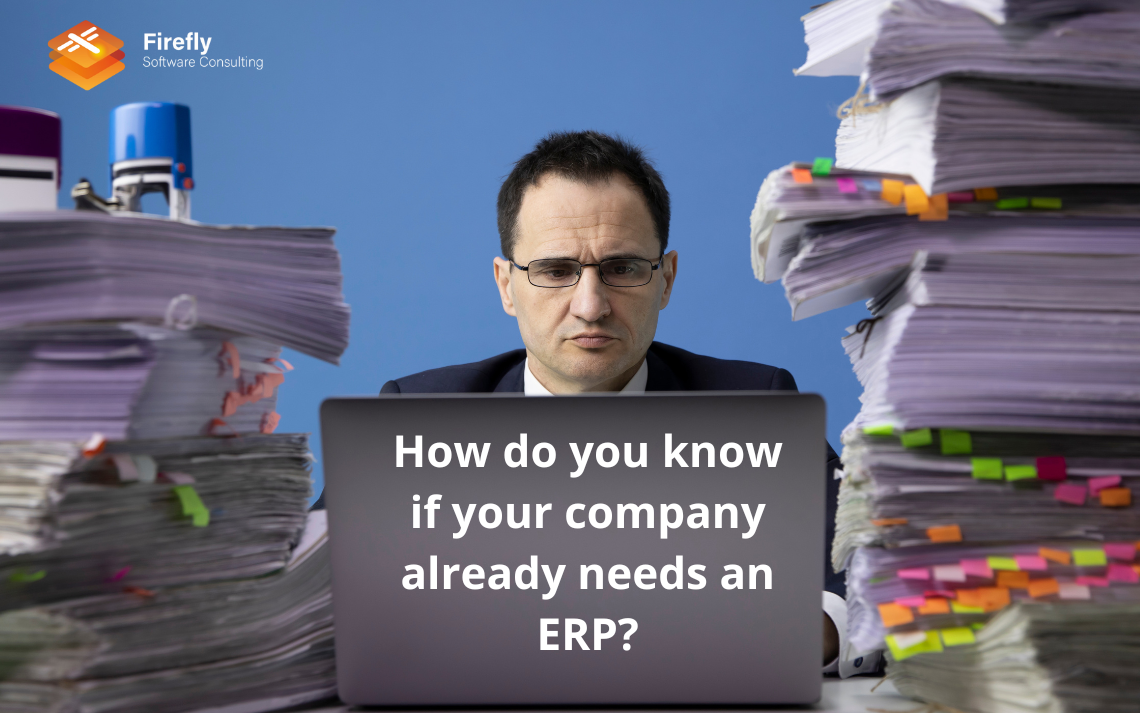Elevate your business: discover what it is an ERP and how it helps your company grow
Surely when you start managing your business you rely on basic resources such as Excel, but as the company grows, these types of tools limit the organization, generating loss of information and preventing its unification. How to say goodbye to chaos and welcome control of all information flows? Keep reading! Learn what an ERP is, what it is for and the importance of implementing it, even in SMEs.
What is an ERP?
The enterprise resource planning system corresponds to software that helps companies operate, automate, manage and streamline their processes. This technological tool also allows all efforts and resources to be conducted through a system, thus coordinating the management carried out by all areas of the company.
What is an ERP for?
An ERP serves to systematize the entire company, that is, organize all processes. It is software that centralizes all the functions needed to manage a company, which contributes to planning and decision-making.
In this sense, the main advantages of adopting an ERP in your company are:
Optimize company processes
Improve productivity
Strengthens interdepartmental communication
Generate collaborative processes
Integrate all information in a single database
Reduce costs
Facilitates teleworking since your collaborators, having a centralized database, have access to it from wherever they are.
Improve customer service since you have quick access to their information.
Data security
These represent just some of the advantages that an ERP offers. Therefore, the absence of an enterprise resource planning system in an organization constitutes a main risk, because it leads to a lack of integration and coordination of processes, thus affecting its competitiveness and growth.
In that sense, it is understandable that companies need an ERP system. However, when adopting it, it is common to make mistakes during its implementation.

5 mistakes you should avoid when implementing an ERP
Not defining objectives. It is important to identify where you are going in order to recognize the result you want to achieve.
Absence of leadership from senior management. It is essential to have a leader who manages the project.
Do custom development. This means you have to pay for new development as your business evolves.
Limit yourself to taking into account only your perspective. It is important to have the advice of a company that carries out a diagnosis and offers you the solution you need according to your business.
Failure to develop a maintenance strategy.
Taking this into account, follow these steps for a successful ERP implementation:
Planning
The human and technical resources that are needed are determined, as well as a schedule that specifies the activities to be carried out, the roles and responsibilities.
Analysis
An analysis of the functionalities is carried out according to the current needs and processes of the company.
Setting
The software installation and pilot tests are carried out.
Data migration
The origin of each data is identified, purified and inserted into the new database.
Training and education
All employees who use the ERP must receive training on its use in order to become familiar with its use.
Software startup and monitoring
The ERP is launched and doubts or unforeseen events that arise in its use are resolved.
ERP implementation for SMEs = greater competitiveness
An ERP is not only for large companies, since the evolution that these have had allows them to currently be accessible to all types of companies.
In fact, one of the most recommended business planning systems for small and medium-sized companies is Oddo-ERP because in addition to being easy to use, it allows you to automate processes: production, finance, accounting, human resources, sales, clients, marketing, projects , among others, facilitating communication between all departments.
This in turn saves time in making decisions and carrying out commercial operations, it also minimizes the risk of errors, generating greater control, monitoring and integration of information, which is reflected in greater competitiveness.
There is no doubt that an ERP not only improves the efficiency and productivity of a company, but also establishes the basis for strategic decision making and identifies opportunities that benefit business growth. Therefore, do not wait any longer to adopt an ERP in your company and discover first-hand the advantages that this brings to your business.





